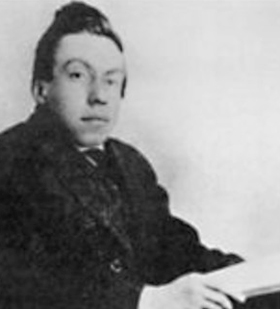Today is the 133nd anniversary of Randolph Bourne’s birthday. Antiwar.com named its parent institute for this early 20th century antiwar activist. Read Jeff Riggenbach’s biography of Bourne.
[Transcribed from the Libertarian Tradition podcast episode “Randolph Bourne (1886–1918)”]
Randolph Bourne was an American intellectual journalist who flourished for a few years in the second decade of the 20th century – in the Teens, the decade that ran from 1910 to 1920. Bourne wrote mostly for magazines during this period. His byline was particularly familiar to readers of The New Republic – until his radically antiwar views on the eve of the US government’s intervention in World War I got him fired.
He moved over to The Seven Arts, a newly launched magazine with a smaller circulation than The New Republic and one less well suited to Bourne’s particular talents and interests, since its primary focus was the arts, rather than social and political issues. He was able to publish only six antiwar articles in The Seven Arts before its doors were closed by an owner fearful of the Wilson administration and its Sedition Act of 1918, which made it a crime to criticize the Constitution, the government, the military, or the flag.
Only a few months after The Seven Arts ceased publication, Randolph Bourne died, a victim of the flu epidemic that killed more than 25 million people in 1918 and 1919, nearly a million of them in the United States. That was 1 percent of the population 90 years ago. One percent of the present US population would be more than 3 million Americans. Imagine what it would be like to live through a flu epidemic that killed more than 3 million people in the space of little more than a year. That’s what it was like for Americans living 90 years ago, at the end of World War I.
Continue reading “The Brilliance of Randolph Bourne: Happy Birthday!”




